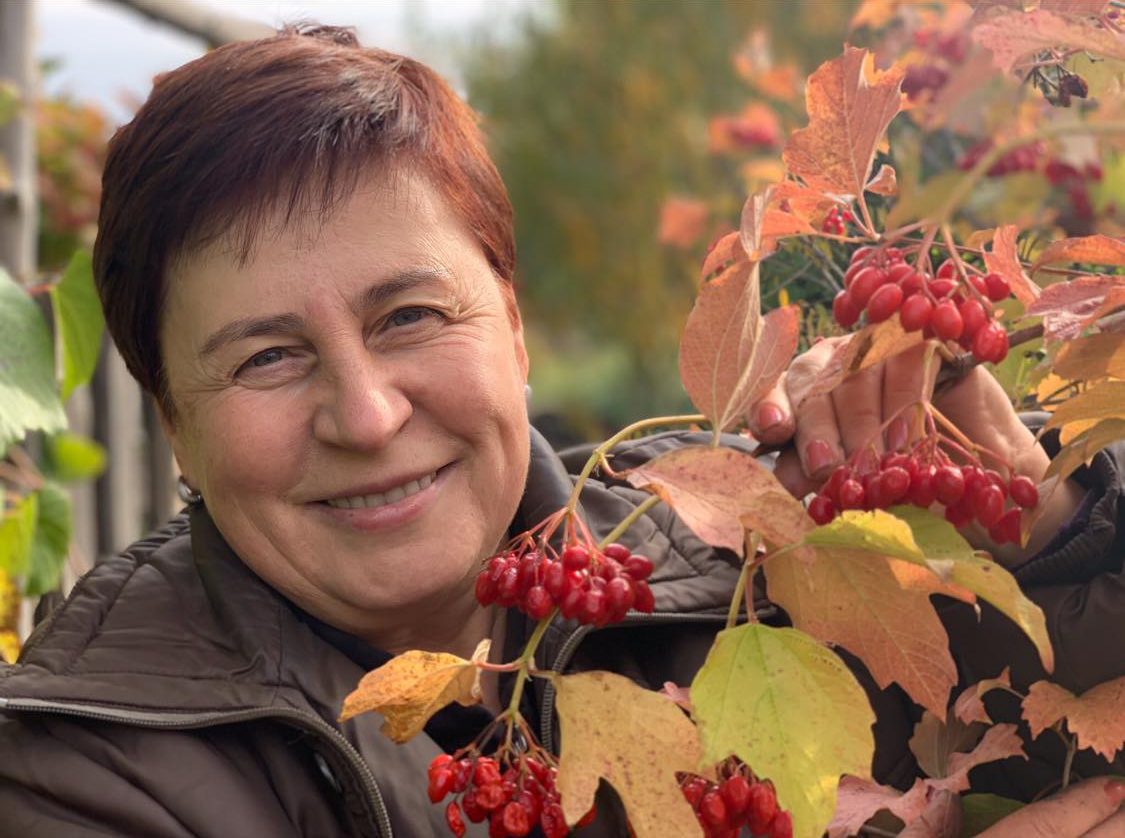After the day-time shooting, the dusk-time quiet is disquieting. From somewhere inside an apartment block, a cat mews, plaintive and forlorn. As the sole occupant in a sixteen-unit apartment building, Larisa, 61, watches darkness enshroud the now empty streets of Kyiv. Those who remain in the city settle in for curfew, holding their collective breath. They wait for the shelling that may or may not come.
When Larisa speaks of life under siege, she is surprisingly composed. When I ask her over Messenger how she manages to sound so centered, she says she knows her family is anxious for her, so she wants to show she is calm and confident. She tells me that after Ukraine has its victory, she will “have her negative emotions.” Then, in characteristic Ukrainian humor in the face of adversity, she cracks a joke,” I am taking care of other people’s cats. Because I am alone here, I have become the lonely, middle-aged woman with cats.” A beat later she adds, “I don’t like cats very much.”
Like many Ukrainians, Larisa is dumbfounded by Putin’s invasion. “I didn’t believe this is possible. It is difficult to believe Putin bombs Ukraine.” When asked why she thought President Putin was fixated on possessing Ukraine as opposed to Georgia or Poland, she said that partly, Russians look down on Ukraine; they consider Ukrainians peasants. Then, she referenced Putin’s speech on February 22, 2022, in which Putin claimed Ukraine should not be independent because Ukrainians and Russians are brothers. “He thinks Ukraine is part of big Russian. Historically, there is no such country as Ukraine. He is crazy.”
She cites police violence against civilians and the annexation of Crimea in 2014 as a turning point in the mentality of Ukrainians with regards to Russia. “Putin showed what Russia is. From that time, we want to separate. We speak Ukrainian abroad so people know we want to separate. He [President Putin] brought so many bad things to our country. Even now, we cannot believe Russian tanks in our country. This ruined our cities, our economy. It will be bad consequences for our children.”
She reflects on the internally displaced people inside Ukraine. “People from the Donbas region are in Kyiv. He [Putin] makes people leave their homes.” Many people from eastern Ukraine and Kyiv are fleeing to western Ukraine, especially wives who do not want to separate from their husbands and are therefore unwilling to cross a border. Larisa is grateful to the countries that have taken in Ukrainian refugees and to the support seen around the world.

Like many of her friends who do not have children living in Ukraine, Larisa decided to stay in Kyiv. She saw how difficult it was for young women with children to leave. In the first days of fighting, there were so many soldiers on the roads, shooting, that people couldn’t tell if the soldiers were Russian or Ukrainian. Getting to the train station was difficult for moms with small children, and then they had to wait at the station without food, sometimes for two days, or they had to leave their luggage at the station. “It scared me. I couldn’t take someone’s place on the train.”
Because so many people have fled Kyiv, the situation on the ground is “okay.” Larisa reassures me that “Ukrainian people have a lot of food stocked.” Even so, “there is food in the shops; there is still garbage collection and street cleaning in the city.” She confirms that in the small cities surrounding Kyiv, the situation is more precarious. There is no electricity or food because of the current siege, and she fears the siege will come to Kyiv in the near future, but in the end, “We believe everything will be okay.”
Larisa says she is most afraid at night. The mornings are okay because it is a new day, but the nights are worse because that is when it is quiet. There is silence and then all of the sudden, there is a big boom. She lives in this cycle of day/night; day/night alone in her apartment block. On the first day of the siege, she had gone to a shelter. Now, she stays in her apartment, which is on the second floor of her building. Besides going to the supermarket, she mostly stays at home, speaking with friends hourly on the phone or by social media. “It’s important to speak with other people now.” When the shelling is bad, she goes into the bathroom and hopes that tomorrow her life will be better. In the morning, she and her friends check on one another again, making sure they have survived the night before they go on to resist occupation for yet another day.
40 hours after this interview was conducted, the situation in Kyiv had become dangerous enough to prompt Larisa to leave. She joins the hundreds of thousands of internally displaced people heading to western Ukraine in search of safety.


